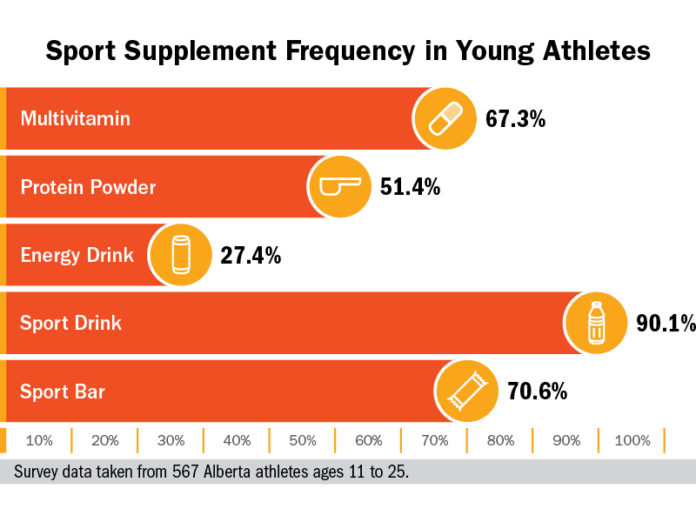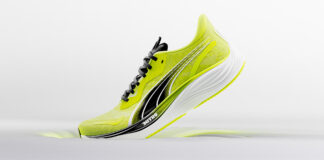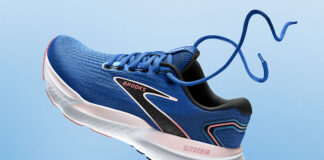
Dietary and sport supplements are used by adult athletes to increase energy, maintain health or prevent nutritional deficiencies and improve exercise recovery. Generally, dietary supplements are designed for adults but are available to everyone, including young athletes. These athletes have their own set of nutritional needs that balance requirements for growth and development while optimizing athletic performance.
In a survey of 567 Alberta athletes ages 11 to 25, almost every athlete was taking at least one dietary supplement. Males were more likely to consume supplements associated with increasing muscle mass, such as protein powder, branched chain amino acids, beta-alanine, and glutamine, while athletes 11-17 years focused on vitamin and mineral supplements. The most prevalent supplement was a multivitamin, taken by 67 per cent of respondents.
Protein powders were used by half of young athletes while seven per cent used creatine. Use increased with age. While creatine and protein powders are generally safe — at least in adults — studies evaluating the purity of nutritional supplements have found low percentages to be contaminated with banned substances such as steroids and stimulants. Furthermore, a nationwide nutrition survey found that children and adolescents consume well within the healthy range for protein and that almost no one fell below. This suggests that protein powders are an unnecessary expense in this group. Although adequate protein intake is essential for building and repairing muscles, higher intakes than are required will not provide additional benefits.
Ninety per cent of the athletes consumed sports drinks. While not inherently harmful, sports drinks do contain a significant amount of calories and sugar. Unless athletes are exercising vigorously for at least an hour to an hour and a half continuously, sports drinks have no nutritional or performance value. A well-balanced diet will provide young athletes with the majority of vitamins and minerals they require, as well as fibre, protein, essential fatty acids and antioxidants. Vitamin-enriched water often only serves to contribute excess calories and sugar.
On average, a quarter of athletes consumed energy drinks, with the highest rates in college-aged athletes at 51 per cent. There is mounting evidence regarding risks of energy drink consumption in children and adolescents and recently the International Society of Sports Nutrition has specifically advised against energy drink use in young athletes. Children and adolescents should avoid the use of sports supplements, such as energy drinks, that have not been designed for them.
Before using any supplement, an athlete should check that the benefit matches their reason for taking a supplement. They should confirm that they cannot achieve the same results using whole foods and that supplementation is indeed required and even allowed in their sport and at their level of competition.
There is also a need for better education. Most young Canadian athletes who take supplements believe they will improve performance and health, but they may not have access to reliable information. Young athletes count on family and friends, coaches and trainers to give them the lowdown on supplements.
A survey of 579 intercollegiate coaches, trainers and athletes found three-quarters of the trainers had adequate knowledge of nutritional supplements, while 91 per cent of athletes and 64 per cent of coaches demonstrated poor understanding of sport nutrition.
Athletes, coaches and parents should educate themselves on the benefits and risks of supplementation to ensure optimal growth, health and performance.















